|
Even though I am relatively successful, I can’t help but feel like I am bad at business. In October of 2022, I opened The Spiral Goddess Collective, a Center for Mind/Body Movement. I cringe when I am referred to as the owner. I want to jump out of my skin when someone calls me an entrepreneur. Both of those terms are accurate, but they don’t feel like a good fit. They make me feel dirty, manipulative, and like an imposter.
I call the business of The Spiral Goddess Collective a not-for-profit because this too is an accurate term, even if it is not sanctioned by the world of business as such. My tax man instructed me that I have to make profit, otherwise the IRS will see my business as a hobby. But my definition of profit is different. I make profit so that I can give back to my community. My business is not-for-profit because everything that I earn goes back into the business. While I pay a portion of the money that comes in to the instructors and curators who teach classes and hold events, the money that comes in from the classes that I teach goes directly to business expenses (rent, internet, supplies, printing, software, etc) and my full-time job supplements the costs of operating The SGC. I don’t (yet?!) make money through my business, but we keep growing! Maybe someday I will make back my initial investments in this grand experiment, this dream, this community hub for embodiment and connection. The Spiral Goddess Collective is a business, but it is also my community service and my activism. It is my laboratory and my art studio that complements my academic work as a Professor of Transdisciplinary Cultural Studies. It is where I put theory into practice. The classes I teach and the workshops and events I offer are a part of this, but providing a space for others to offer their classes, events, and workshops is another big part. And providing this space and all of our offerings to our community at Pay What You Can/Sliding Scale prices is the whole. My university views my work at The SGC as a conflict of interest, and I have been trying to make the argument that this conflict is actually a benefit to the university, the community, and to our students. But the truth and reality of what The Spiral Goddess Collective is and what it does is not in alignment with policies written to attempt to limit greed, exploitation, and business as usual. * My mother told me that I should not tell people that I am bad at business. Maybe it is not that I am bad at business as much as it is that I don’t like to play by the rules that most businesses play by—the rules set by capitalism and intertwined with other oppressive systems and structures. And there are some business things I am pretty good at. In less than two years I have learned two different class management software systems. I’ve learned how to use a variety of other software programs and how to navigate a maze of aspects related to owning a business. I have built upon my skills, experience, and knowledge from my dual careers in academia and the world of fitness. I am highly organized and really good at making and managing schedules. I’m pretty good at website design and social media and program development. I’m good at communicating and valuing people. I can do a lot with very little and I am a multitasker in all things, but there are a lot of details to manage. There are too many things that I want to do for the business, but time is never on my side. Thus, the biggest reason that I am bad at business is that I have a full-time job as a professor—the kind of job that has no boundaries and a million expectations (and is particularly dangerous for people-pleasing overachievers who tend to lack boundaries!). It is the kind of job that can never be left at work; it always follows me home. My “real job” bleeds over into my work at The Spiral Goddess Collective, and it has threatened my health and well-being many times over the years. My job in academia is one of the reasons why I teach movement, dance, yoga, and fitness classes and preach self-care and embodied social justice. It is an attempt to find balance. * In my work at The SGC, I’ve tried not to confuse my desire to provide access with the martyrdom that sometimes comes along with preaching Pay What You Can/Sliding Scale options and offering full and partial scholarships. I want to offer everything for free, but there are bills to pay and friends in the business have told me that people can’t wrap their heads around free. Free means that something has no value. Free means that they are unlikely to invest in themselves. Free means that I don’t value my own worth. And what they tell me is evident in our culture: too many people want to buy into myths about weight loss. They want to be told that they can reach all of their impossible goals. They want to know how many calories they will burn; they want to see the results on their Fitbit or Apple watch. They want it all to be quick and easy. They want to punish themselves. They want to fit in and they want to stand out. They want superficial transformation—a body to envy. This is not what we are offering. I want to have more faith in people. I want to think that there is a different way of doing fitness and business as usual. And I think that we are beginning to see cultural shifts that will make what we offer at The Spiral Goddess Collective more valuable. I think that people are tired and need more rest and relaxation, deeper restoration, and support for their mind/body/spirit. I think people are disconnected—from themselves and from each other—and that they are looking for authentic connections and opportunities for embodiment. I think that people are searching for meaning and purpose and that they are looking for something different than fitness as usual and business as usual. * For all of the struggles, my work at The Spiral Goddess Collective makes me happy. Teaching what I want to teach, the way I want to teach it, in line with my principles and values, and supporting other people’s teaching makes me happy. When I opened The SGC I envisioned it as a collective and it has become more and more of a collective every month. I have generous, supportive instructors and curators who often give their time, money, and energy as well. And we have grateful members of our collective (aka: clients, participants, customers) who love our space, our vision, our mission, and our offerings. I am grateful for all of the people who make The SGC what it is—a unique center for mind/body movement. I want to believe that there are ways of doing business as not so usual, and I see the evidence of this possibility every day.
0 Comments
We live in a class-stratified society. Some of us have more economic wealth. Some of us have less. Some of us have a lot more! And some of us have a lot less. And some of us have enough to live relatively comfortably, to meet our basic needs as well as some extras—like vacations and yoga classes!
Pay what you can/sliding scale pricing options are a way of contributing to economic justice. We want to promote dignity and belonging for all of our community members. Healing modalities and embodied movement options like yoga and dance are often expensive and not available to some of the people who need these services the most. We think that we all need these services and Sliding Scale/Pay What You Can Pricing helps us to be more inclusive and community-oriented. Pay what you can means that if you can pay more, please pay more and if you can’t pay, we have a scholarship program to support you. This economic justice initiative is on a kind of honor system. In other words, we trust you! We do not ask you to disclose financial information and we do not judge you for what you choose to pay (or not to pay). Instead, we ask you to make the payment choice that feels right for you. Some days Pay What You Can might be the lowest on the sliding scale; other days you might have some extra and can contribute to our scholarship fund. Let‘s break it down a bit more: How hard a person works does not translate into economic wealth; the system (white supremacist capitalist ableist patriarchy) exploits workers and relies upon a hierarchy that leaves some people without enough to meet their basic needs. If you can pay more, then not only are you paying for the services and offerings that we provide, you are also making it possible for someone with less economic wealth to experience these offerings and services. Please choose the higher end of the sliding scale prices and/or consider making a donation to The Spiral Goddess Collective Care fund. If you have enough, then please pay what you can and perhaps choose the mid-range of the sliding scale when you can and the low range of the scale most of the time. Sometimes, we fall on hard times—or we just can’t get unstuck. We think that our programs help improve mental and physical health and overall quality of life, so we also offer full or partial scholarships through The Spiral Goddess Collective Care Fund. Again, we trust you. It’s not easy to ask for help and we want to make it as shame-free as possible! WEEKLY CLASSES Our weekly Classes include a variety of dance, yoga, and meditation offerings and are available through a variety of pricing options including: Drop-in sliding scale $12, $15, $18 Spiral Punch Card: 5 classes for $59 Double Spiral Punch Card: 10 classes for $99 Caregivers Monthly Special Rate $68 If you provide care to others and need some extra support for your self-care, we invite you to select the Caregivers Monthly Special Rate. We will continue to offer The Spiral Goddess Collective Care Fund Scholarship. You can apply for this scholarship via this Google form, by emailing us at [email protected], or by filling out an application when you come in. We do not ask for financial information. We trust that you need this option if you ask for it. SPECIAL EVENTS Our special events provide an enhanced version of what we offer in our weekly classes. They are priced differently. In order to access the Pay What You Can/Sliding Scale options, when you register for an event, please use the following “promo code discount” to access the payment option that meets you where you are. $5off for $5 off the total price $10off for $10 off the total price $15off for $15 off the total price $20off for $20 off the total price SGCCF for a full scholarship (please contact [email protected] for this option) * We think that the programs that we offer have a high value, but we also want to make them more accessible to all of the members of our community. 100% of our profits at The Spiral Goddess Collective go directly back into the business and donations to community organizations that are in line with our mission and vision. Many of the Curators at The Spiral Goddess Collective choose to donate a portion of what we make so that we can provide our services and offerings to more people in our community. Pay what you can/sliding scale pricing is an economic justice initiative. We appreciate you choosing the price option that best fits what you can pay for our services. * Here are a few more deals for the month of May*: Write a Google Business review (from 5/1/24 to 5/31//24) and receive a promo code for 20% off any one-time purchase. Bring Your Mom to Sonic Yoga Nidra on Mother’s Day (May 12) and purchase a Spiral Punch Card for half price! Bring a friend to class (their first class is free) and you both receive 20% off your next purchase (good from 5/1/24 through 5/31/24). Attend one of our weekly meditation classes (Yoga Nidra Monday at 4:30pm and Meditation for the Mind and Body Wednesday at 6:00pm) and receive 20% off your next purchase (good from 5/1/24 through 5/31/24). *One offer per member (if you come to The SGC you are a member!). Must purchase in-person or email us for the promo code. Part of the reason I opened this space was to offer something to our community that is rarely found in other places and spaces dedicated to fitness, wellness, dance, or yoga—a space that is inclusive of all bodies and identities not just in word, but in practice. I wanted to bring my particular approach to yoga and movement, which is queer—unconventional, radical, inclusive, trauma-informed, creative, and “deeply rooted in truth, love, and justice,” as Jacoby Ballard describes (and as I quote in part 1 of this blog). There are many ways to be queer, and one way is to challenge gender binaries and social and cultural norms of all kinds.
Many gyms draw strict gender lines with offerings for men and women, reinforcing stereotypes that weight rooms are for men and group fitness classes are for women. Locker rooms where you have to choose to identify as “man” or “woman” will likely feel unsafe if your appearance is gender non-conforming. Some yoga classes offer a certain pose variation “for men” or “for women” and reinforce binaries of gender. The music used in a lot of classes reinforces heterosexual narratives about love and romance and stereotypes about men and women (and boys and girls). Further, many group fitness classes are populated by people who are thin and already “fit” and fat bodies are conditionally welcomed into that space if they want to lose weight, as if this is the only goal of moving one’s body. The messaging in and around group fitness is largely about losing weight—about changing your body to be more “fit” or “healthy,” which ultimately means more socially acceptable. But “fat” is not just a physical weight we carry; it is often related to trauma—the psychological weight we carry. And narrow cultural norms reinforce the psychological weight that queer people, and all socially unacceptable people, carry. Before opening The SGC, I taught fitness classes for over a decade at a community non-profit where I did not feel comfortable being out (and I taught fitness classes elsewhere for many years before I was brave enough to consider myself queer). I was discouraged from including “political” messages in my classes and promotions for classes. I taught a program where I was required to use music that often had lyrics that I found to be offensive to women and to reinforce stereotypes related to race and sexuality. But it was deemed “clean,” and context was ignored. Still, being in my fat body, leading a class, was the least I could do to push back again one of the norms of fitness spaces. More than once a new participant walked right past me to talk to the thin woman they thought must be the instructor. Too often, we are unaware of the limited scripts we participate in on a daily basis and most gyms and fitness centers prefer not to have these societal corsets pointed out. One of the worst examples from this past teaching gig is something that happens all the time in mainstream/corporate America. One day I walked in to the facility to witness a large, masculine person teetering around in high heels and “acting” like the female CEO because he had won the honor of “CEO for the day.” The staff filled the lobby as everyone laughed and cheered for this offensive display, which was probably considered to be a light, fun team-building activity. I felt extremely uncomfortable as I passed through to teach my class and imagined what it would be like to be trans and witness that display. I debated for weeks about whether I should say something to my supervisor or just let it go. I still regret that I let it go. So, opening The Spiral Goddess Collective is also an opportunity for me to be more brave, more open, and more in line with my values. This is part of “the potential for queer identity,” what Mattilda Bernstein Sycamore describes as “the radical potential to choose one’s gender and one’s sexual and social identities, to embrace a radical outsider’s perspective, to create a culture on our terms, and to challenge everything that’s sickening about the dominant culture around us.” The Spiral Goddess Collective embraces a radical outsider’s perspective. Despite a name that is feminine, and perhaps makes people wonder if men are allowed to attend classes and events at The SGC (the answer: of course they are and they do!), our space is pushing up against the boundaries of the norms of fitness spaces as well as the norms of social justice movements. The Spiral Goddess is not just a symbol for women—it is an archetype that informs what we birth into the world, how we use our energy, how we treat ourselves and each other, and how we connect our inner and outer worlds. Feminine qualities and values like collaboration, compassion, empathy, nurturing, and flowing are seen as weaknesses. Women are expected to work out to get hard, but not too hard. To be thin, but still curvy. We compete against ourselves as much as the other women in the room. And, women and femme people of all genders, have been excluded, abused, and threatened in fitness spaces (and the larger culture), to say the least. Men are made to feel like they have to be stereotypically masculine (competitive, linear, logical, assertive, independent, controlling), which just adds to the problems of our patriarchal world and the mental health problems of men, women, and children and everyone outside of these gendered categories. Individuals are forced to choose one side of the gender binary or to push back as non-binary, both of which can lead to violence against ourselves and others. At The SGC we embrace the radical, political meaning of queer and practice radical acceptance—we invite you to come as you are and to discover that you are so much more than you’ve been allowed to be. We invite you to start healing your wounds so that we might also heal the systems and structures that cause these wounds. Transformative healing happens form the inside out and the outside in. When we move our minds/bodies together, we are stronger—we are a collective of power and potential! Queer is a reclaimed word. It is an umbrella term and denotes a spectrum of identities and sexualities that have been marginalized and demonized. I like this term because it is inclusive, political, and ambiguous; and the word also means unusual, not normal, odd, eccentric, and unconventional. To queer something, as Jacoby Ballard describes, is to “critique, challenge, and transform toward something more radical—that is deeply rooted in truth, love, and justice.” In this way, The Spiral Goddess Collective is a queer enterprise. And there are many ways to be queer.
Despite my professional life as a professor and fitness instructor—both things that appear to be the realms of the extrovert—I am a shy, introverted, home body who likes to spend time by myself—usually with a book and preferably with a cat or two or three. I’m not the type to yell from rooftops or wave a flag in a parade regardless of how passionate I am. When Hannah Gadbsy asks where the introverted queers are in her brilliant stand-up special, Nanette, I whisper “right here” and feel seen. When I filled out the forms to propose Bangor Pride Events—a Queer Yoga/Yoga Outside the Box event on June 17, First Friday Free Dance on June 2, and a table among the vendors at the Pride celebration on June 24, I was reminded about how much anxiety can come from inclusion and visibility. I’m sure I am not the only introvert who feels this anxiety when they are asked to expose semi-private parts of themselves toward a bigger cause. And yet, brave acts by marginalized people have created social change and continue to transform our world. I would like to be so brave, but my role is to support and facilitate. And I am far more comfortable behind the scenes. I have offered several events at Bangor Pride in the past through my role as a professor at UMA-Bangor. But now I offer these events through The Spiral Goddess Collective, a Center for Mind/Body Movement. Part of my desire to participate in Bangor Pride is to bring more visibility to the space and our offerings. We are a space where members of the LGBTQIA+ community can come for dance and yoga and healing modalities that are inclusive, trauma-informed, and social justice-oriented. And The SGC is a space where we want everyone to feel welcome. We are not simply a yoga studio; we are a center for mind/body movement. What we offer at SGC is not an ordinary approach to "fitness," dance, or yoga—it is something deeper and it is difficult to get people to come try something new, especially something that requires vulnerability and self-reflection. As Jacoby Ballard argues, queer and trans people don’t often have “the opportunity to be in their bodies as their whole selves” and a queer approach to yoga (and JourneyDance!) “creates expansion and spaciousness.” The Queer Yoga/Yoga Outside the Box event on June 17 is partially inspired by Jacoby Ballard’s book A Queer Dharma: Yoga and Meditations for Liberation. We all deserve to be in our bodies as our whole selves and this is one of the goals of SGC. Our work is inspired by a desire to make a difference in our community. We offer scholarships and encourage people to pay what they can. We offer a space where people can come together toward embodied wholeness—movement that isn’t about meeting the demands of dominant culture, but meeting ourselves where we are. In my yoga training, one of the mantras we rely on for guidance is “letting go of competition.” We often follow this up by saying: “letting go of competition with ourselves and others.” Sometimes we can be really hard on ourselves when we compete with our own expectations and judgements. (We also let go of judgement and expectations!) And we can make our friends and community members into enemies when we see them as competition. We will never be as beautiful, as thin, as strong, as successful, as whatever as the person standing next to us. But we also never know what they are struggling with in their life. Yoga teaches us that it is best to tend our own garden and to let our neighbors tend theirs, but this mindset is in direct competition with American culture!
When I first started to ask myself if I could open a yoga and dance studio, I almost shut myself down before I started because I was afraid of the competition. I knew I would have to compete with the Bangor YMCA where I have taught a variety of fitness, dance, and yoga classes since 2010 (and left because I was told that I am not allowed to talk about The SGC at the Y). I knew I would have to compete with the long-established OmLand, only a few doors down from my new space at 16 State Street. I knew about a few other dance fitness opportunities, like Sunshine's Zumba and Jill's Beyond Bold Dance Fitness. (I love dance fitness and I love that we have a growing number of options in Bangor, including my new neighbor offering classes on the 3rd floor starting in January--Dirigo Dance Fitness.) When I came across Eye Candy Dance and Fitness, I almost ran away from my dream. "A place where you can feel empowered to be yourself," Eye Candy's tagline, articulates what I have offered in my academic and fitness classes for as long as I have been doing this work. And belly dance fitness and empowering women—these are two things that have been staples of my work in the world of dance fitness. How could I complete with sexy, trendy classes and savvy social media? Each time my internet research revealed another “boutique fitness” enterprise that I did not know about, my doubt grew and I told myself that I was crazy to think that I could do this—that I could be a business woman, that I could have my own space for the kinds of fitness/dance/yoga classes that feed my soul and inspire me to make the world, and my community, a better place. But then a few things occurred to me that set me on the path to pursue this dream of The Spiral Goddess Collective, a Center for Mind/Body Movement: 1) While there may be competition concerning people’s time and money and the coveted post-work time slots, what I am offering does not exist in Bangor. It doesn’t really even exist in Portland. Maybe this unique space and concept I am offering does not really exist anywhere, at least not in this particular form. In this case, there is no competition at all. 2) The space that I have created (with the help of many of my friends) is downright magical. From the moment I walked up the stairs to the fourth floor, my mind started to imagine what that space could become and what I have created matches that vision with room to grow. I am confident that when people drag themselves up those four flights of stairs, they feel the lightness and positivity, the possibility of what we can discover when we move our minds and bodies and our collective mind/body. (And the stairs get easier every time!) 3) Because I believe in community, I believe that there is space for all of us. I believe that what I am offering is something that people in Bangor have been looking for. It has existed in different iterations in the past, but now is the time for it to flourish. I tried to offer mind/body movement and radical approaches to fitness/dance/yoga at the Y and was able to reach some people who might not know to look for such offerings, but it became clear that I needed my own space to push back against limiting definitions and mainstream ethics. I am honored and humbled to be able to create a space for mind/body movement, a place for community-building and radical acceptance, for self-exploration and interpersonal connections, for growth and healing—for so much more than I can imagine, and I have a vivid imagination! 4) And, finally, it has been a long road of self-discovery, self-compassion, and self-acceptance, of growth and healing and confidence-building to get to where I am today. I have never fit into the box of “fitness” despite spending 25 years teaching almost every iteration of group fitness—many that I created and choreographed. And I have struggled to believe in my gifts and talents. I have struggled with body image. I have struggled with being radical and queer in a vanilla world that wants repetition and predictability and to know how many calories they are going to burn and whether they have discovered the magical pill of weight loss (spoiler alert: there is no such thing). Today I am trying to be the best and most authentic version of myself without fear or shame, and I am inviting my community to do the same. It's not easy to push back against the messages that we receive every day—messages that tell us that we will never be good enough and fuck with our self-esteem and self-worth, to say the least. JourneyDance was what set me on a path to believe in myself and my “personal medicine” as they call it in our training. Ironically, the CEO of the Bangor YMCA set me on this path when she told me about the online teacher training. I am grateful to her and to my time in the fitness industry. I have learned many skills and lessons and I have made them my own. I still love dance fitness, but what I have to offer is more than just fitness and I am excited to bring JourneyDance—and my eclectic, creative, intuitive approach to yoga and mind/body movement—to this space and to the larger Bangor community. I am excited to be able to bring in other talented, unique people who also have gifts to offer our community. What we offer might scare some people away, but I hope it will attract people who are looking for something different than a workout. We offer yoga that meets each person where they are, dance that is about how you feel not about how you look, healing that goes at your pace, space and activities that nourish and open new possibilities. Deciding to approach fitness, health, and wellness from a different ideology is not easy, but it is worth it. If we practice consistently, we will start to see changes we might have thought were not possible. Getting here is the hard part, but I am confident that once people take that leap they will return again and again because they will feel the difference that mind/body movement makes. As the saying goes, we have to feel it to heal it—to move and be moved. And a message from our business hat: we have gift certificates in any amount and a 10-punch card for your gift-giving needs! Give the gift of yoga, movement, self-healing, and self-care to yourself or someone else who needs it. And your first class is always free! 8/20/2022 0 Comments For Indigenous People's Day . . . A Space with a View, A Center with a ViewpointLand acknowledgements have begun to be standard practice for many institutions and organizations, as well as for yoga teachers and studios. These statements aren't just an act of bending to the political climate--they are a recognition that the power-over practices of the past continue to reverberate into the present day, impacting the physical, mental, social, cultural, and economic wellness of individuals, communities, and our nation and keeping inequalities firmly in place.
Toward the larger goals of social justice, it is important to recognize that where we are and what we do does not exits in a vacuum. Both the land and the traditions of indigenous peoples influence and support the work we do at The Spiral Goddess Collective as well as the work that all of us who participate in conscious dance and yoga, specifically, and modern life, generally, participate in and benefit from. What does this mean? Part of our work is not just to acknowledge our debt to indigenous people's and traditions, but also to continue to educate ourselves, to honor these roots, and to participate in and support ongoing indigenous movements toward, individual, cultural, and collective healing and self-determination. This work is ongoing but it is only a beginning. Downtown Bangor and The Clark Building, and thus The Spiral Goddess Collective, a Center for Mind/Body Movement, exist on the unceded homelands of the sovereign people of the Wabanaki Confederacy: the Penobscot, Passamaquoddy, Maliseet, and Mi'kmaq people. The Kenduskeag Stream, a tributary or the Penobscot River, dominates the view from the windows at the front of the SGC center. The Penobscot River continues to be contested territory in the centuries-long struggle for stewardship toward ensuring a healthy ecosystem for all of Maine. Also framed from this view is the monument to Charles O. Howard, the victim of a hate crime in 1984. While walking down the street, Howard and his boyfriend were harassed for being gay and then Howard was assaulted and thrown over the bridge into the Kenduskeag Stream where he died by drowning. This, too, is a legacy for our land. On a wall near the Howard memorial is one of my favorite examples of street art and my favorite bird. It seems apt that some of the meanings and symbolism of the hummingbird include: "signals that challenging times are over and healing can begin. . . . an inspiring sign of hope and good luck. Hummingbirds also can have a spiritual significance and mean the spirit of a loved one is near." Bangor, and the State of Maine, are microcosms for the United States where movements for social justice have been ebbing and flowing since before the U.S. officially became a country. As a part of the legacies of racism, sexism, white supremacy, and imperialism we honor the land where we live, love, breathe, work, and find community. We acknowledge that here in the U.S. what we have was built on stolen land and by forced labor. We pay back this debt by keeping our eyes, ears, minds, and hearts open and settling for nothing less than justice, equity, peace, and love. Finally, yoga's roots are thousands of years old and are part of a larger set of traditions from indigenous practices from India, Africa, and other regions in the world--there is nothing new about embodied practices, but many have been lost, forgotten, or forced out of our cultural norms. The yoga practiced and taught at The SGC, a Center for Mind/Body Movement, draws on a variety of traditions, mixing styles and approaches that blend breathing, embodied movement, and meditation. Sarah writes more about these practices and approaches in her blog and in her forthcoming book, American Yoga Demystified: Creative/Critical Insights for a Complex World and an Evolving Mind and Body. On Indigenous People's Day, Monday, October 10th, 2022, we will not hold classes, and I hope we will hold the weight of indigenous peoples and practices, past, present, and future, in our hearts and minds. Here are a couple of resources if you want to learn more about The Wabanaki Confederacy: Four Directions and the Wabanaki Alliance. |
CategoriesAll Academia American Fitness Art Business Care Work Careworkers Creativity Cultural Politics Fitness Guest Blogs Language Meditation Mind/body Self Care Self-care Social Justice Space Transformation Trauma Women And Fitness Yoga Archives
June 2024
|
|
|
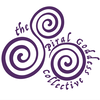

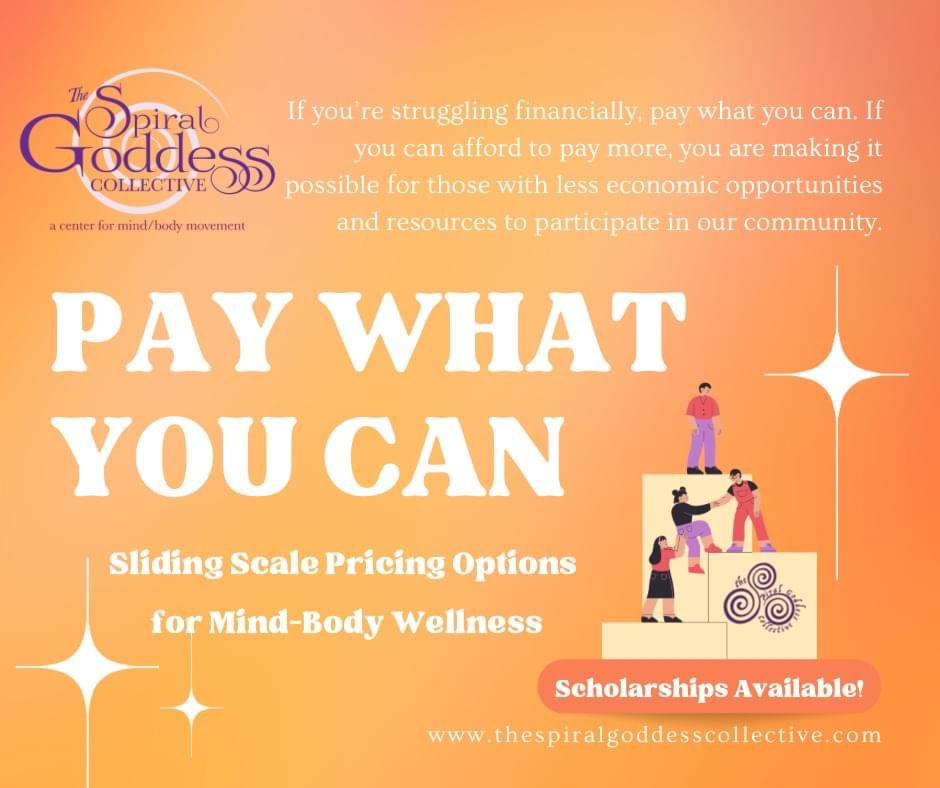
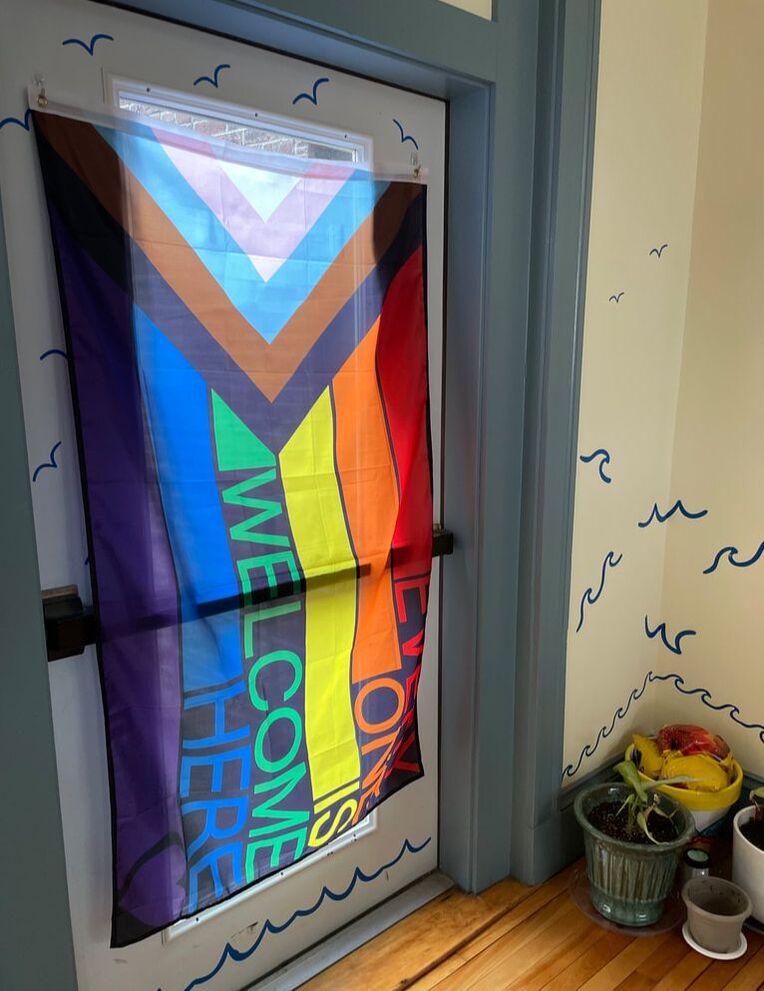
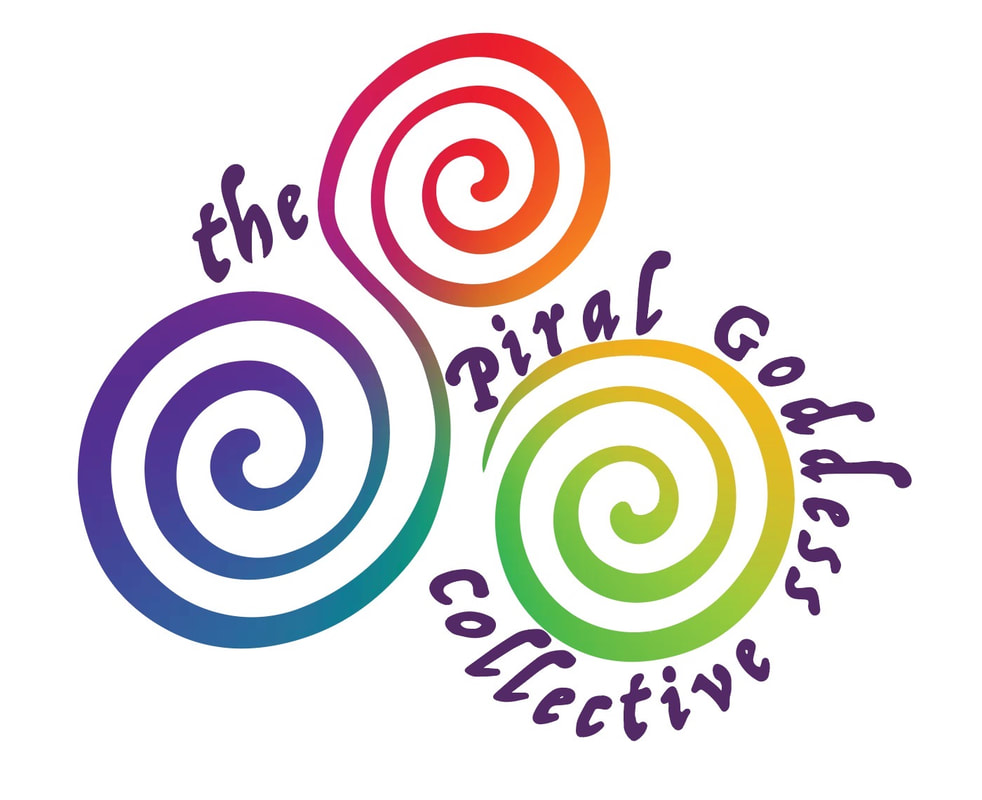
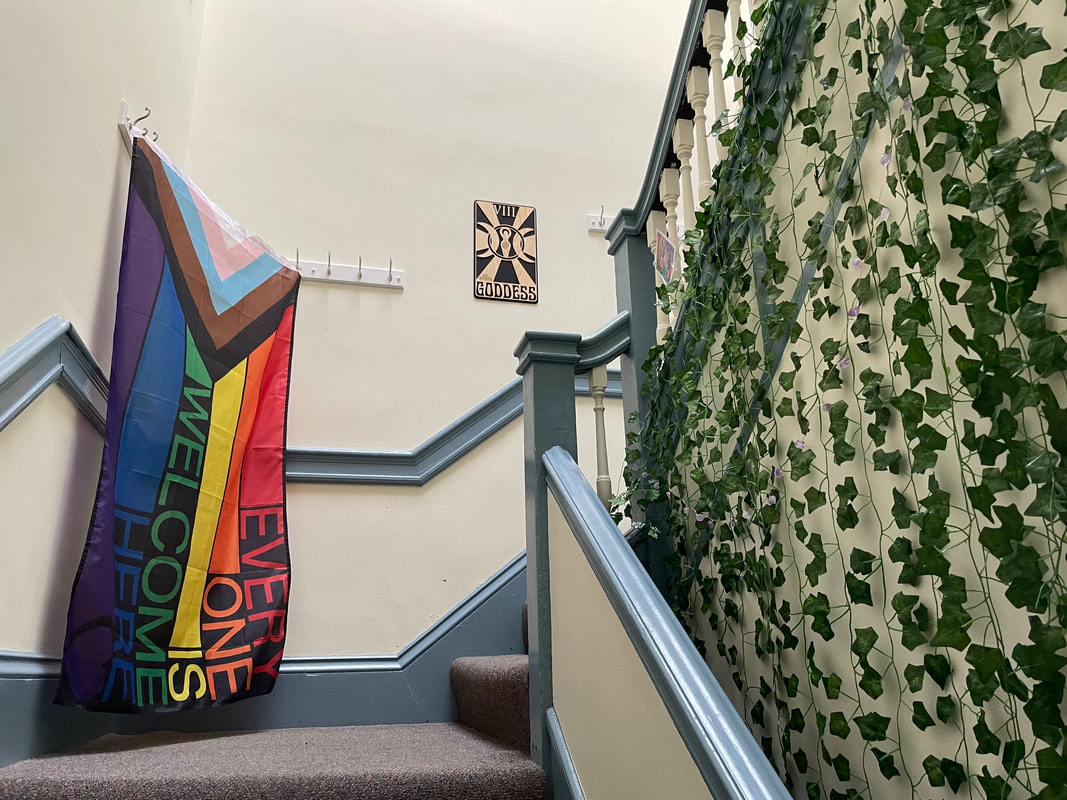
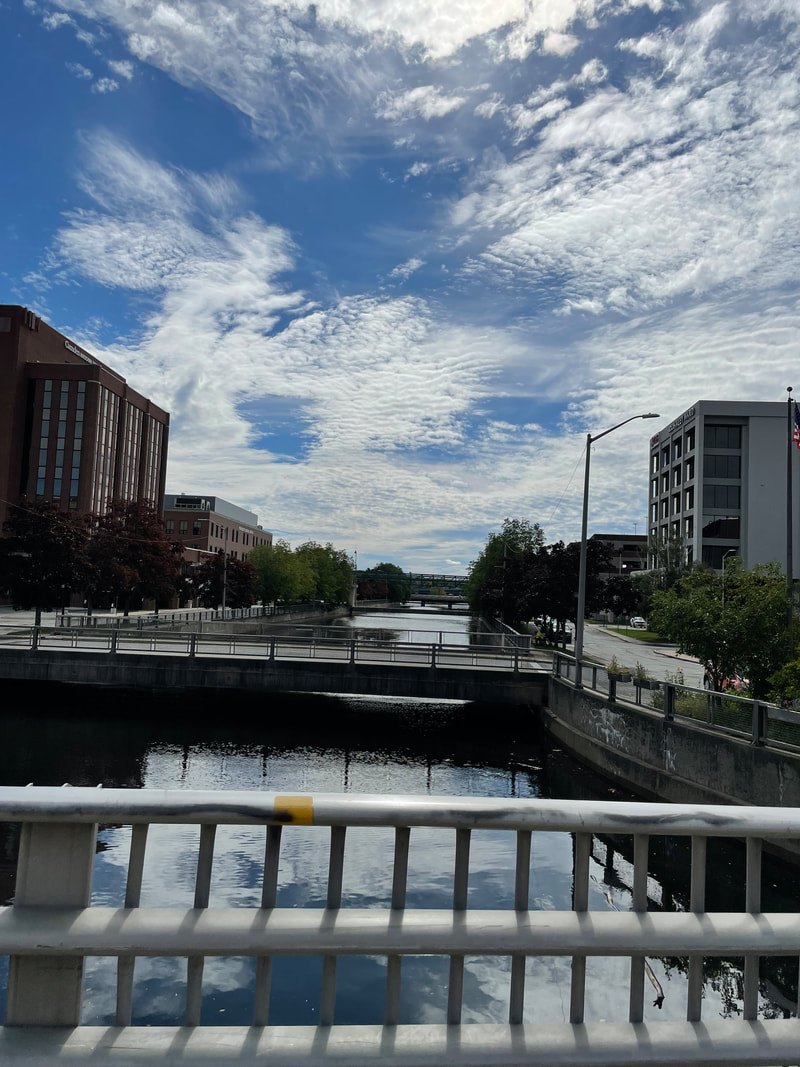
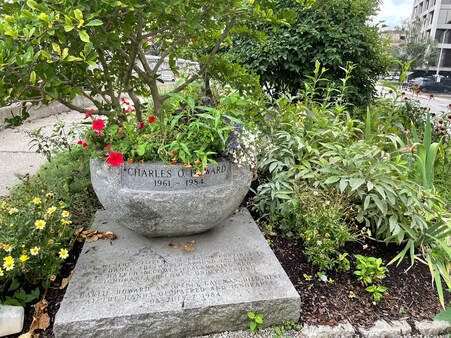
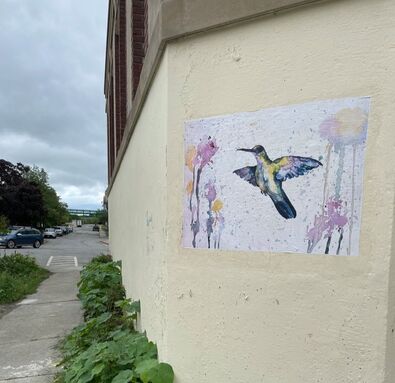
 RSS Feed
RSS Feed